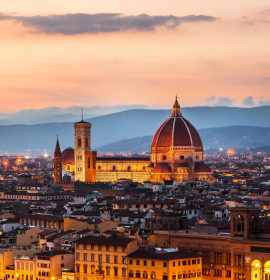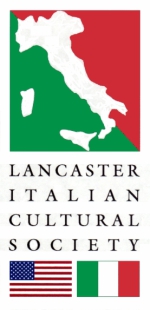Italy by Emma DiPace
Landing in Fimuncino greets a traveler with strange tongues, different smells, and new food. She notices the little changes: white lines in the middle of the street, the kit kat wrappers in the vending machine have a different design, the fruit is fresher, there are fewer McDonalds, more cafes, different fashion trends.
She hops in the car for an eight-hour drive from Rome to Caminia- a small beach town in the Calabria region-determined to stay awake and take in all the sights. Every town she passes through is different from the last. Some towns built into cliff sides, others at the peaks of mountains, and more nestled in the valleys. The buildings have a different style, the people have a different dialect, and there are different customs. She wonders how these people have become so spread out along the mountains, and is fascinated by how much diversity is under one seemingly universal culture. She is fascinated by the mountains, by their great size and beauty. They continue to rise up and up, and follow her down the highway, never revealing what may be on the other side.
There is a point, in southern Italy, where the mountains become closer and closer, and the radio stations fade in and out as the car rides through tunnels. 93 tunnels on the journey.
She sees smoke in the distance, a brush fire, the side of the hill covered in red flames. The dry season.
The blue sky ahead grows larger and larger, melting into the pure, sparkling Caminia Bay. The road trip is over. She quickly joins her family in unpacking and runs with her dad to the local grocery store. They marvel over the multitudes of cheeses, fresh breads, and delicious meats, coming home with an assemblage of almond milk, prosciutto, nutella, and bread.
The next day, her cousins arrive, quickly pulling her into their everyday lives during the summer. She follows them around, amazed by the differences between her social life and that of her cousins. She watches the interactions between them, trying to piece together their conversations.
She goes for a drive over to her grandmother's town of Gabella-a town located at the peak of a mountain with a windy, circuitous road to the top. They park along the main road, walking through streets not wide enough for a car to pass in order to get to her grandmother's house. The house is small, a mere three rooms and an attic, but has so much charm. It overlooks the valley and sea below-a breathtaking view. Her grandmother, ecstatic to see them, has food waiting for them, and way too much of it. She eats until she is full and then eats some more. She marvels at the old family photos. They take a walk around the town and visit cousins, aunt, and uncles, all offering more food with incredible hospitality. She is charmed by the small town's big heart, love, and familiarity. The neighbors all remembered her father from when he lived there decades ago.
They return to the beach for a large family dinner. At home, bedtime was nine o'clock, but there, supper was just beginning. The meal lasts for hours. More and more food comes out. There is much laughter, catching up, and translating between two languages.
She was continuously amazed by everyone's social lives. After dinner, her cousins invited her and her sister out with their friends. They hung out on the beach until one in the morning, a time only fathomable on New Year's Eve at home. The town was still very much alive at this time of night, which explains why it sleeps until ten o'clock in the morning.
Her cousins are able to speak and understand English, having learned it from a young age in school. They offer translations, hoping to include us in the conversation. She begins to further comprehend the Italian language, remembering words and phrases often said. She hopes to one day be able to communicate in Italy without relying on a translator, which would allow her to fully immerse herself in the culture.
She notices the houses-all significantly smaller than those back home. A higher value is placed on friends, family, and community than on having many material possessions. The Italians like their
material possessions, but care more about the quality of an item than of how many of the item the person has.
After a tearful goodbye with her family, she travels back to Rome. She visits many landmarks, seeing with her own eyes those places told about in history classes. She notices piles of trash along the
roads, and overgrown parks, suggesting issues in the government. The drivers are crazy, motorcycles zip in and out of traffic, bumping along cobblestone streets. Restaurants stay open until well into
the morning. Venders are set up all along the streets, bombarding the masses of tourists.
She is sad to leave the place she has grown accustomed to in such a short amount of time. She will miss every minute being an adventure-even trips to the grocery store. She will miss the amazing food-especially prosciutto and the fruit. But most of all, she will miss the person she was at this point in time in this place. She hopes to return someday soon.




